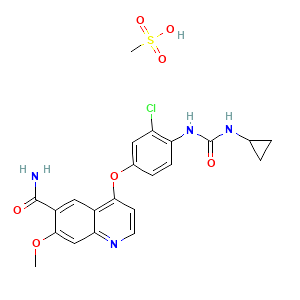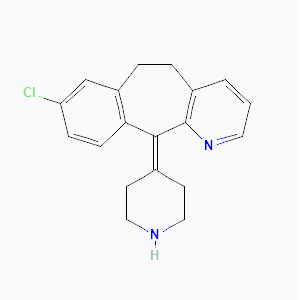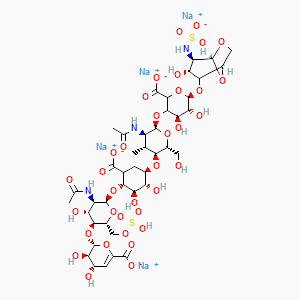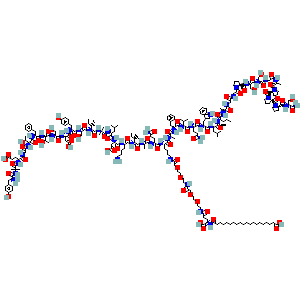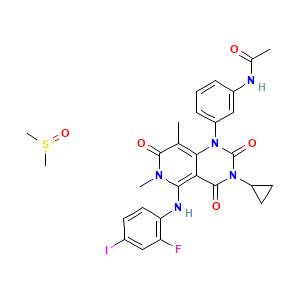Mechanism Of Action:
Lenvatinib is classified as a receptor tyrosine kinase (RTK) inhibitor that effectively suppresses the kinase activities of vascular endothelial growth factor (VEGF) receptors, namely VEGFR1 (FLT1), VEGFR2 (KDR), and VEGFR3 (FLT4). Additionally, Lenvatinib displays inhibitory effects on other RTKs that have been implicated in pathogenic angiogenesis, tumor growth, and cancer progression, as well as their regular cellular functions. These RTKs include fibroblast growth factor (FGF) receptors FGFR1, FGFR2, FGFR3, and FGFR4, as well as the platelet-derived growth factor receptor alpha (PDGFRα), KIT, and RET.
Indication:
Differentiated Thyroid Cancer
Lenvatinib is utilized for the treatment of locally recurrent or metastatic, progressive, differentiated thyroid cancer that is resistant to radioactive iodine (iodine-131) therapy. This therapeutic approach is specifically targeted towards patients whose cancer does not respond to iodine-131 treatment and is experiencing disease progression.
Renal Cell Carcinoma
Lenvatinib is administered in combination with pembrolizumab as the first-line treatment for advanced renal cell carcinoma. It is also used in combination with everolimus for the treatment of advanced renal cell carcinoma in patients who have previously received therapy with an anti-angiogenic agent. These treatment regimens have been specifically designed to address the needs of patients with advanced renal cell carcinoma, either as an initial treatment or following prior anti-angiogenic therapy.
Hepatocellular Carcinoma
it is recommended as a first-line treatment for unresectable hepatocellular carcinoma. It is an effective therapeutic option for patients with advanced liver cancer that cannot be surgically removed.
Endometrial Carcinoma
in combination with pembrolizumab, is employed for the treatment of advanced endometrial carcinoma that lacks microsatellite instability-high (MSI-H) or mismatch repair deficiency (dMMR) and has shown progression after prior systemic therapy. This treatment is specifically intended for patients who are ineligible for curative surgery or radiation and aims to address the needs of this patient population.

